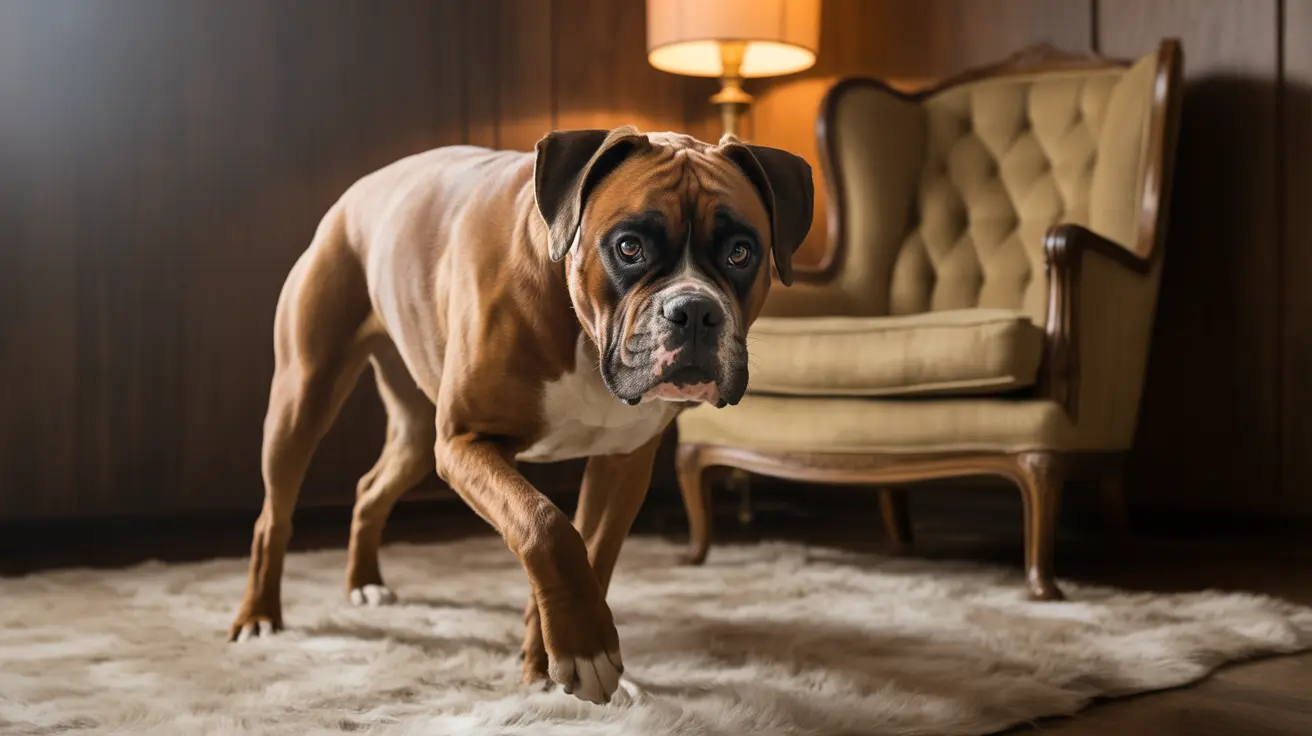If your dog is restless at night, you're not alone. Many pet owners face this challenging behavior, which can range from mild fidgeting to persistent pacing and whining. Understanding why your dog is restless at night is crucial for both your pet's well-being and your family's sleep quality.
Night-time restlessness in dogs can stem from various causes, including medical conditions, anxiety, environmental factors, or age-related issues. Let's explore these causes in detail and learn how to help your furry friend get better rest.
Common Medical Causes of Nighttime Restlessness
Physical discomfort often leads to restless behavior in dogs at night. Conditions such as arthritis, dental pain, or gastrointestinal issues can make it difficult for your pet to settle comfortably. Senior dogs are particularly susceptible to joint pain, which often worsens during periods of inactivity.
Medical conditions like thyroid problems, Cushing's Disease, and heart disease can also disrupt your dog's sleep patterns. These conditions may cause increased thirst, frequent urination, or difficulty breathing, all of which can lead to nighttime restlessness.
Anxiety and Stress-Related Restlessness
Dogs can experience anxiety for numerous reasons, particularly at night when the house is quiet and dark. Common triggers include:
- Changes in household routine or environment
- Separation anxiety
- Thunder, fireworks, or other loud noises
- New pets or family members
- Moving to a new home
Anxiety-induced restlessness often manifests through behaviors like pacing, whining, excessive panting, or seeking constant attention from their owners.
Age-Related Factors and Cognitive Dysfunction
Senior dogs may experience cognitive dysfunction syndrome (CDS), similar to dementia in humans. This condition can severely impact their sleep-wake cycles, leading to increased nighttime activity and confusion. Signs of CDS include:
- Disorientation in familiar environments
- Pacing or wandering aimlessly
- Vocalizing for no apparent reason
- Disrupted sleep patterns
- Increased anxiety, especially at night
Environmental and Lifestyle Contributors
Your dog's environment and daily routine play crucial roles in their sleep quality. Insufficient exercise, lack of mental stimulation, or uncomfortable sleeping conditions can all lead to restlessness at night. Ensuring proper exercise and creating a comfortable sleeping environment are essential steps in addressing these issues.
Solutions for Nighttime Restlessness
Create a Comfortable Sleep Environment
Establish a dedicated sleeping area that is:
- Quiet and dark
- Temperature-controlled
- Equipped with a comfortable, supportive bed
- Free from drafts or excessive noise
Establish a Consistent Routine
Maintain regular schedules for:
- Feeding times
- Exercise periods
- Bathroom breaks
- Bedtime rituals
Address Medical Issues
If you suspect your dog's restlessness is due to a medical condition, schedule a veterinary examination. Early intervention can prevent the problem from worsening and help ensure your pet's comfort.
Frequently Asked Questions
What are the common reasons my dog is restless and panting at night?
Common reasons include anxiety, pain, medical conditions like heart disease or hormonal issues, cognitive dysfunction in senior dogs, and environmental discomfort such as excessive heat or an uncomfortable bed.
How can I tell if my dog's nighttime restlessness is due to anxiety or a medical issue?
Anxiety-related restlessness often occurs with specific triggers and may include panting, pacing, and clingy behavior. Medical issues typically show additional symptoms like changes in appetite, drinking, or bathroom habits. A veterinary examination can help determine the exact cause.
What should I do if my senior dog shows confusion and restlessness during the night?
First, schedule a veterinary examination to rule out medical issues and assess for cognitive dysfunction. Maintain consistent routines, ensure proper lighting, and consider medications or supplements recommended by your veterinarian.
How can exercise and environmental changes help reduce my dog's restlessness at night?
Regular exercise helps tire your dog physically and mentally, promoting better sleep. Environmental modifications like creating a quiet, comfortable sleeping area and maintaining consistent room temperature can also significantly improve sleep quality.
When is it urgent to take my restless dog to the veterinarian?
Seek immediate veterinary care if your dog shows symptoms such as excessive panting, drooling, bloated abdomen, unsuccessful attempts to vomit, or signs of severe pain alongside restlessness. These could indicate serious conditions requiring emergency treatment.
Remember, persistent nighttime restlessness should never be ignored, as it often signals an underlying issue that needs attention. By working with your veterinarian and implementing appropriate lifestyle changes, you can help your dog achieve better sleep and improve their overall quality of life.






